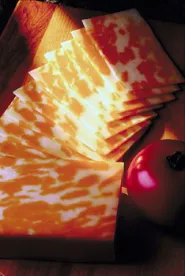On May 9, 2014, a group of 177 Congressional Representatives sent a letter to U.S. trade officials that urged them to stop European Union (EU) efforts to use geographical indications to restrict the use of common cheese names, such as parmesan, in the United States.
Geographical indications are used to protect a product name when that name is derived from the product’s geographic origin, quality, and characteristics. In the United States, there are a handful of products currently protected by geographical indications (sparkling wine from California cannot be called “Champagne”). The EU, in the current negotiations over the Transatlantic Trade and Investment Partnership, is attempting to expand the number and type of European products that would be protected by geographical indications in the U.S.
If the EU’s efforts are successful, U.S. producers of cheese styles that are named after geographic regions of Europe, such as parmesan (Parma, Italy) or Gouda (Gouda, Netherlands), would have to market their product under a different name, for example “gouda-style.” The EU has already used trade agreements to restrict cheese naming rights. Latin American countries, and the bi-partisan collection of U.S. Representatives hopes to avoid that outcome for U.S. cheese producers.
In their letter to the U.S. Trade Representatives (Michael Froman and Agriculture Secretary Tom Vilsack), the Representatives asked that the trade delegation “work aggressively against the EU’s efforts.” The letter echoes concerns voiced by a bi-partisan group of 40 Senators in a letter sent to the same trade delegation on March 11.






 />i
/>i

